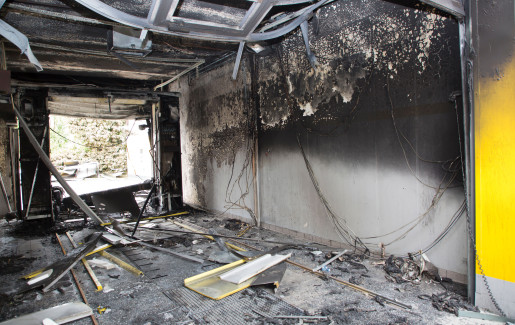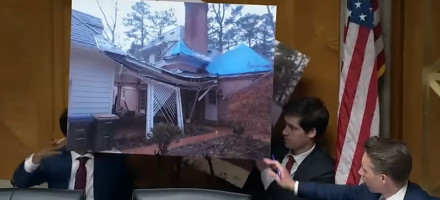Strategic Settlement: Indiana Car Wash Fire
A catastrophic blaze destroyed the standalone car wash facility at Heubolt Chevrolet, a prominent car dealership situated in Indiana. The insurance company’s preliminary evaluation, rooted in a narrow interpretation of the policy terms, suggested that the dealership had already reached its policy limits, revealing a concerning gap in coverage that implied significant underinsurance in the face of such a substantial loss.
Description
The fire at Heubolt Chevrolet’s car wash, a freestanding facility where customers could drive up, pay, and remain in their vehicles during the wash, resulted in its complete destruction. This loss was not just a blow to the dealership’s infrastructure but also a significant disruption to their service offerings, both for their own operations and for the public who relied on this accessible and convenient service. The destruction of this car wash, a notable feature of the dealership’s multiple locations, created a profound setback in the day-to-day functioning and service quality for which they were known.
Issues
1. The insurance company initially capped the coverage at around $500,000 for contents, not fully accounting for the comprehensive loss of the car wash. This evaluation was based on their interpretation of the policy’s contents clause, which significantly underestimated the value of the car wash and its equipment.
2. One of the major challenges was accurately valuing the car wash’s tunnel system. The insurance company’s initial assessment
did not recognize the true cost of its critical components, estimated to be around $1 million, leading to a significant
coverage gap.
3. There was confusion in the insurance policy regarding the differentiation between building coverage and business personal property. This lack of clarity added complexity to the claim, as it affected how different components of the car wash were covered under the policy.
4. Initially the dealership, under the impression that they were already at their policy limits, felt compelled to accept the insurance company’s offer. This acceptance would have led to a substantial financial loss, given
Solutions Applied
Our team carefully reviewed the insurance policy and devised a strategy to claim the tunnel system under business personal property coverage. We explained to the client that the policy’s coverage for machinery and equipment could apply to the tunnel system, treating it as business personal property rather than a part of the building.
We utilized the policy’s unique structure, which had separate sub-limits for buildings but provided blanket coverage for business personal property across all dealership locations. This approach opened up access to a significantly larger amount of coverage under the business personal property clause.
Our adjusters collected essential documentation, including tax records and accountant statements, to demonstrate that the dealership was paying personal property tax on the entire tunnel system. This documentation was critical in supporting our argument for its classification as business personal property.
A detailed coverage letter was presented to the insurance adjuster. In this letter, we articulated the rationale for classifying the tunnel system under business personal property, aligning this interpretation with the policy’s terms.
We engaged in persistent and detailed discussions with the insurance adjuster, overcoming initial resistance. Through thorough explanations and presentation of compelling evidence, our team successfully prompted a reevaluation of the claim.
Outcome
The insurance company, following our firm’s thorough negotiation and strategic approach, agreed to cover 100% of the loss. This resolution provided the dealership with the essential funds needed to fully rebuild and recover from the fire’s extensive damage. Ultimately, the dealership’s decision to collaborate with our team resulted in receiving an additional $1 million, a clear demonstration of the significant return on investment that expert involvement in insurance claims can achieve.



